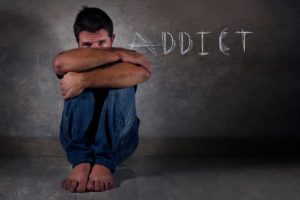What Is Faith-Based Treatment and Christian Drug Rehab?
Faith-based treatment includes religious and/or spiritual beliefs and philosophies into the rehab program activities. There are many services settings available across the U.S. where patients can get faith-based treatment. Some of the most common programs you can find are usually Christian drug rehab ones, but there are many options out there.
Faith-based programs will still include everything non-religious programs do. However, along with medical and psychiatric treatment, it will also include activities that focus on faith and healing. While the types of activities vary depending on the program, they will work in parallel with the beliefs of the chosen religion.
When recovering from addiction or quitting, a person’s faith can truly come into play. Faith encourages spiritual transformation, which is very important for those with such beliefs. Rehabilitation is about change and moving forward, and to someone religious, including spirituality can be very important.
While dealing with addiction, feelings of hopelessness and loneliness can be quite strong and overwhelming. Working on someone’s faith, on their ability to believe and connect, can be an in-depth healing process to overcome such negative feelings.
Guilt and low self-esteem are also feelings that plague those struggling with addiction. In a Christian drug rehab context, for instance, they might learn the power of forgiveness and understanding others and themselves. The need to love yourself and others will also be important during the rough journey of quitting and recovery.
The Importance of Christian Beliefs During Rehabilitation
Hundreds of studies have shown that faith-based treatments, like Christian drug rehab, have moderate to high success compared to non-religious ones. While religious experiences are unique and personal, a relationship with God or a Higher Power can have many roles in recovery. Specifically, many recovering addicts credit the power of prayer in their resilience and transformation.
In Christian drug rehab, some of the things that might be worked on are:
- Believing in one’s self
- Believing in redemption
- Confidence in God and/or a higher power that can help
- Believing in self-forgiveness and acceptance
- Looking to help those less fortunate going through the same path
- Trusting in each moment and trusting the process
- Believing in religious ideals and rules to guide them
- Believing in the ability to achieve change in their lives
- Confidence that one can lead a substance-free life
- Believing that not all suffering last forever and can be overcome
These are just some of the ways Christianity can help someone get through recovery. Being comforted by the fact that there is hope is crucial to finish any program. Most importantly, this can help a patient work back into believing in themselves as well. A patient needs to have the right mindset in difficult times to overcome them, and this can be a way to do so.
Many of the steps in Christian drug rehab, such as self-forgiveness, are so important that they’re already part of non-religious programs. There is a concept behind these beliefs that show they are inherently important for people to heal.
How Does Christian Drug Rehab Work?
As mentioned before, Christian beliefs are inserted in the program through multiple activities. Therapy, whether individual or in groups, can be designed to include Christian-focused interpretations and insights. Patients might also receive mindfulness training, helping them deal with their emotions then and in the future. Any coaching sessions can also include Christian teachings and point of views for life as well.
In any faith-based treatment program, rites and habits and needs are taken into consideration, and therefore, are included. There can be places and hours of worship included in the schedule, as well as any commemorative dates and celebrations. Because maintaining such habits is important to patients’ beliefs, and can help they feel indirectly in touch with the outside world.
Other ways Christian drug rehab might be different than non-religious ones are its group activities. Some programs include prayer groups, bible groups, and others that have a Christian-based purpose. No matter the program, group activities are important to fight feelings of loneliness and to help rebuild a social circle. Once outside, a recovering addict will need to surround themselves with people that understand them and their needs and limitations.
More often than not, these programs tend to have a residential/inpatient service setting. While they can be outpatient programs, the former option can provide a more in-depth experience. Plus, it can help the patient avoid triggers and opportunities to relapse into their old habits. Though Christian drug rehab works, it takes time to work, like any other program would. The patient mus be ready to go into the world before doing so.
Sobriety After Christian Drug Rehab
One of the roles of religion after treatment is to keep the person motivated. Leaving a treatment center can seem quite scary, and there can be triggers everywhere. Having a community that they can count on can make them feel secure, having a safe space to go to. There, they will have a chance to connect with others and engage in activities where they will feel useful. This will not just help them feel less lonely, but it will make they feel they truly belong somewhere.
Faith and the 12 Step Program
Many support groups, like Alcoholics Anonymous, incorporate the belief in a higher power into their 12 steps. This belief is in the core of accountability, admittance, and addiction recovery. Some of the traditions of the 12-step program also include surrendering to a loving God. The steps that mention a higher power, which can be whatever the person believes in, are:
- “Coming to believe a power greater than ourselves could restore us to sanity.” (Step 2)
- “Made a decision to turn our will and our lives over to the care of God as we understood Him.” (Step 3)
- “We’re entirely ready to have God remove all these defects of character.” (Step 6)
- “Humbly asked Him to remove our shortcomings.” (Step 7)
- “Sought through prayer and meditation to improve our conscious contact with God as we understood Him, praying only for knowledge of His will for us and the power to carry that out.” (Step 11)
- “Having had a spiritual awakening as the result of these steps, we tried to carry this message to alcoholics, and to practice these principles in all our affairs.” (Step 12)
Besides connections with others, religion can make people connect with themselves again, and with their beliefs. Finding a spiritual path and experiencing spirituality can give recovering patients a sense of direction. Once back in their routine, this can help with morale and make people feel encouraged to find a purpose in other areas of their lives. The feeling that a higher power is guiding the course of all things can make them feel secure as well.
Christian Drug Rehabilitation in California
Famous for its diversity and opportunities, California can be great for those in Christian drug rehab. The many beaches all along the West Coast, from Northern California to San Diego, can be great for mediation or daily devotionals. The connection with healthy surroundings is a way to avoid relapse.
Unlike what many may think, substance-use related numbers in California are not as bad as most states. Reported lethal cases of drug poisoning have been lower than the national average since 2009. While the national average has gone up, California’s has been stable since 2013. This shows the state has the resources to help addicts and recovering patients recover and improve.
Christianity is still the most popular religion among adults in California, as around 63% of them report being Christian. Counties like Orange County have a really strong Christian community California. Many famous mega-churches call Orange County home. Some of them are Rick Warren’s Saddleback Church, Chuck Smith’s Calvary Chapel, and Mariner’s Church.
With how strong the Christian presence is in Orange County, it’s surprising that there are not more drug and alcohol abuse treatment facilities focusing on helping Christians overcome drug addiction. At present, there are surprisingly few inpatient Christ-based addiction treatment centers in Orange County, California.
The Christian drug rehabs that currently exist in Orange County are often traditional treatment programs with a sprinkling of Christianity worked in, or Christian boot camps with strict rules and “One Step” recovery – which isn’t always the more forgiving or encouraging approach to addiction treatment.
Northbound And Christian Rehabilitation
In recognition of the need for truly effective Christ-based addiction treatment in Orange County, Northbound developed the LINKS Program – a Christ-based addiction treatment program. LINKS is a residential program dedicated to helping Christian individuals recover from drug and/or alcohol addiction. The program has faith and science intertwined, so that the Christian drug rehab treatment can touch all the bases.
The goal is to aid patients through their spiritual journey and allow them to attend local church services while receiving treatment. It’s an opportunity to reconnect with their faith, or to keep on working in their already existing spirituality. The counseling during the LINKS program has a Christian-based focused approach. It also helps patients learn how to incorporate faith-based beliefs in problem-solving and when dealing with challenges.
The program is meant to teach that sobriety after Christian drug rehab is possible. LINKS helps patients understand they are just humans who are prone to making mistakes, and help them through the path of self-forgiveness.
If you want more information about groups and programming, you can contact us today. While we do offer other non-religious programs that are just as effective, we are proud of the program we’ve designed. The effectiveness of faith in rehab has been proven, and we understand its importance. Visit our website for more information and call us with any questions you might have. We hope to be your choice as you embark on this healing phase.











